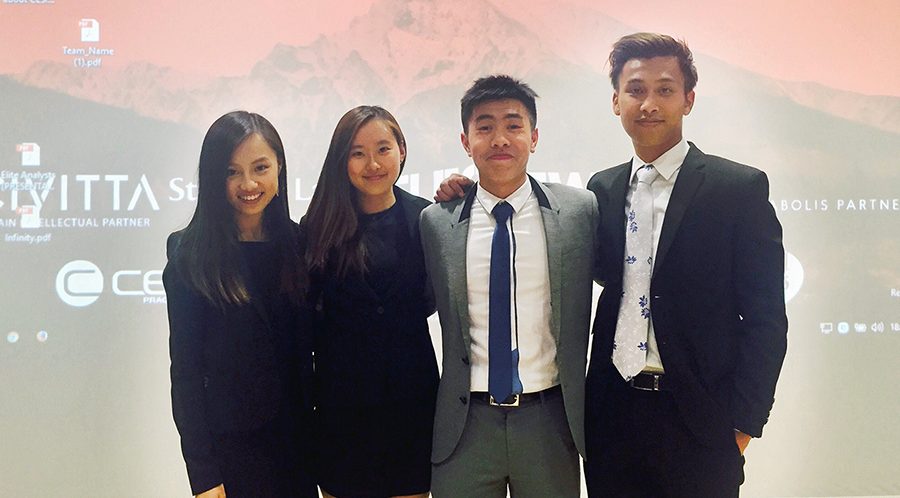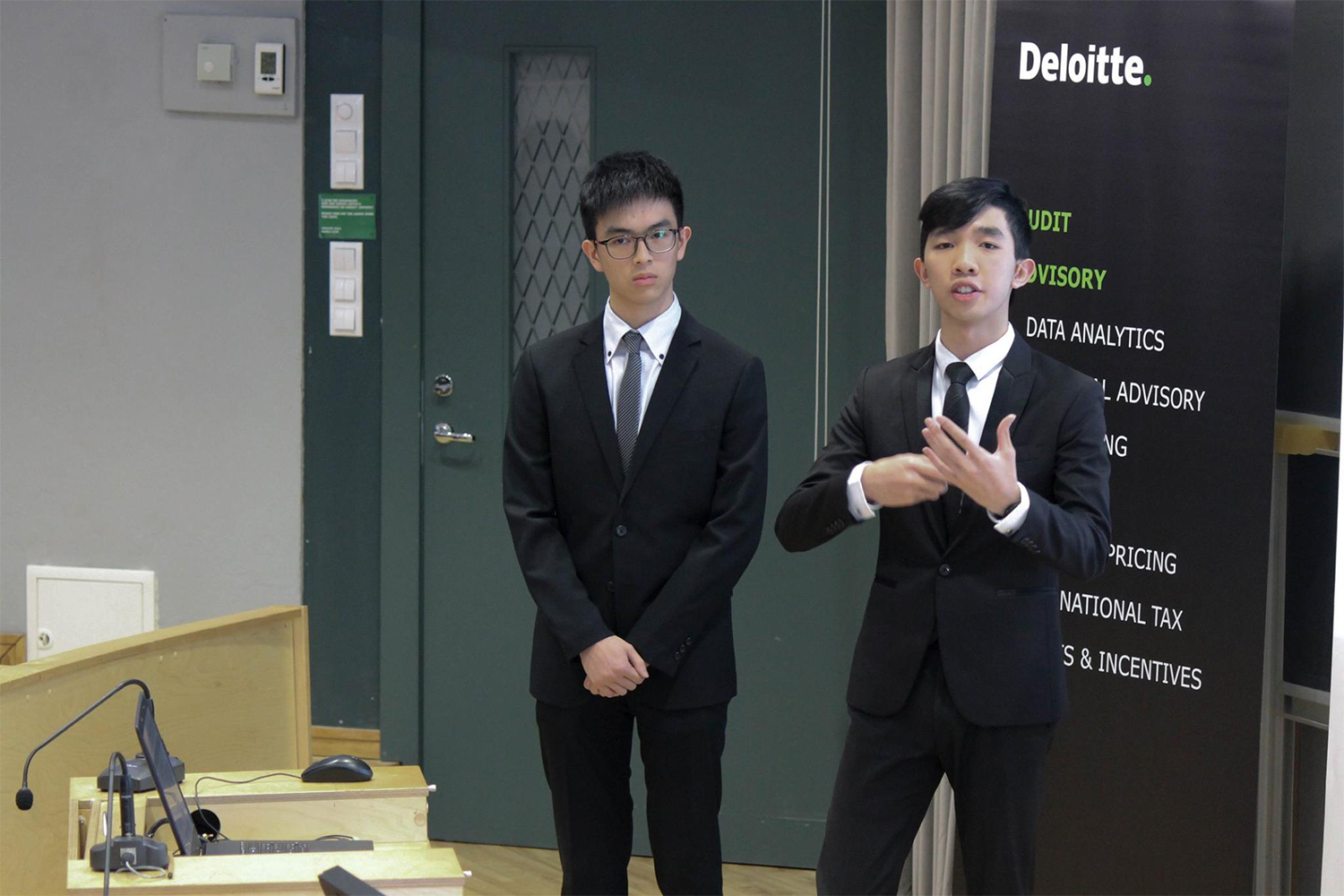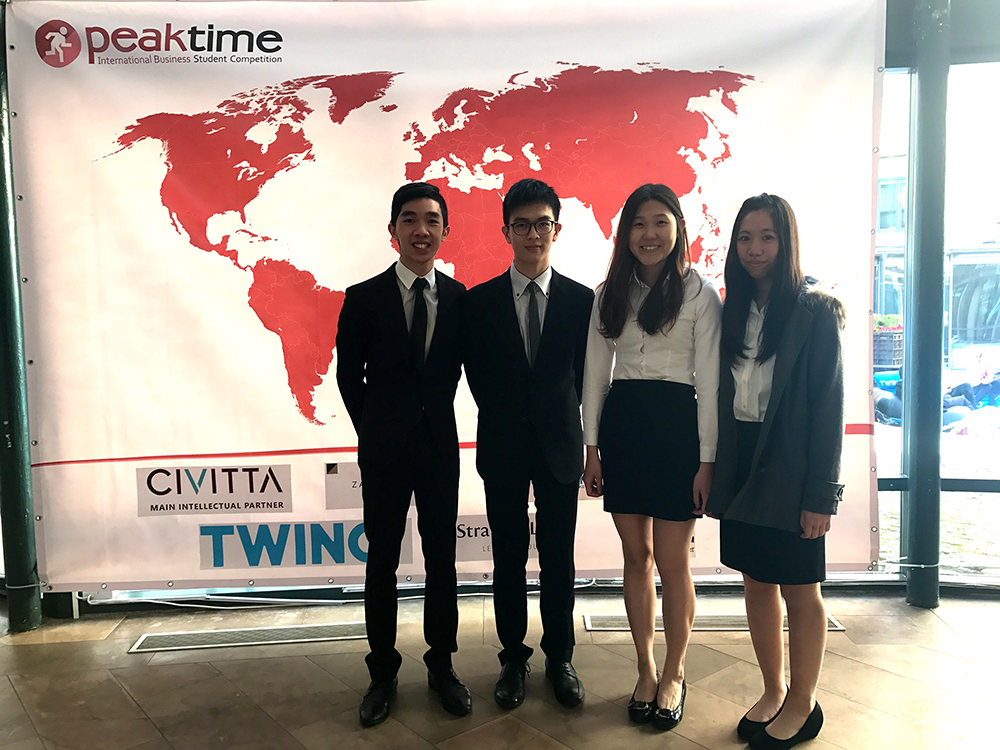Undergraduate Business Student Teams Win First and Second Runners-up at Peak Time 2017 in Latvia

Two teams of undergraduate business students were awarded the first and second runners-up in the Peak Time Case Competition 2017 from 5-7 May, 2017 in Latvia.
Two teams of undergraduate business students were awarded the first and second runners-up in the Peak Time Case Competition 2017 from 5 to 7 May 2017 in Latvia. The first runner-up winning team consists of four undergraduate students, Giselle Yu (Quantitative Finance and Risk Management [QFRM], Year 3), Colin Law (International Business and Chinese Enterprise [IBCE], Year 2), Joyce Mok (Global Business Studies [GBS], Year 3) and Wilkins Tong (GBS, Year2).
In the preliminary round, participating teams had to simulate operating a mobile company, and conduct a quantitative analysis for a strategic business case in the second round, followed by a presentation to a panel of industry professionals. The final round of the competition gathered the top 20 performing teams from all around the world to solve various business problems and network with like-minded people in Riga, Latvia.
During the final round, participating teams were given only four hours to prepare for the case. Under great pressure to balance the time between brainstorming a solution for the case and preparing the content for the presentation, the team was challenged to think on their feet. With a keen sense of critical thinking, well-coordinated team work, and exemplary presentation skills, the team managed to impress the judges and were awarded the first runner-up.
Another team of undergraduate students were also awarded the second runner-up in the competition. Members of the team are Stella Chan (IBCE, Year 1), Zara Chan (GBS, Year 1), Chester Cheng (Integrated BBA, Year 2) and Ken Cheung (QFRM, Year 2). The team offers the following advice for future Peak Time participants: “Peak Time puts a huge emphasis on quantitative analysis and practicability, so it is advised to strengthen your quantitative analysis ability beforehand. By going through the simulation exercises of the cases from the previous year, your team can review its performance and make the necessary adjustment to improve the team’s efficiency.”
CUHK Business School has previously brought home the championship from the Peak Time Case Competition in 2016 and 2013. Organised by the Stockholm School of Economics in Riga, Latvia, Peak Time is one of the largest annual international student business competitions since 1999. The competition attracts up to 2,000 applications from over 230 institutions and 80 countries all over the world each year, and serves as a platform for the best and most motivated students to network amongst themselves.
This article was first published in CU iBUS (July 2017 issue) by the Undergraduate Office, CUHK Business School.



